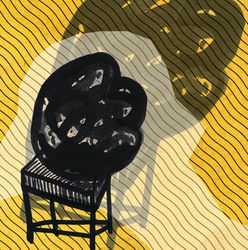Union IT minister Rajeev Chandrashekhar must consider the Indian public to be most gullible if he thinks his argument for a governmental fact-finding body will wash. He argues that a wholly government-appointed fact-finding body without any countervailing authority to check its actions before it takes them within minutes in real time, is justified because government is the target of “most misinformation attacks” and “only the government has access to government data and so it is impossible for any non-government entity to effectively fact check content about the government”. And, so, he wishes to put in place a system where the government becomes the judge in its own cause! And the way is thus opened to removing all checks and balances on government evaluations and actions since in every case government would be entitled to claim that it alone is capable of determining what is what as it alone has all the required “facts”.
We are treading dangerous constitutional ground here, threatening the very basis of our Constitution where justice is open and transparent, and no one, not even the government, is allowed to hide from the court’s stern view of all the germane facts and alternative perspectives on these facts. For, after all “Facts are sacred; opinion is free” as the famous Guardian editor, C.P. Scott, remarked and raised to the basic credo of frank, free, and fearless journalism.
The press note issued along with the minister’s decision claims it seeks an “open, safe and trusted and accountable Internet”. It does nothing of the sort. It just seeks to control public access to significant facts and governmental interpretation of these since, according to Chandrashekhar, government is “the target” of “most misinformation operations”. But what of situations, increasingly frequent, of others being the target of government-inspired “misinformation” and “no information”—such as the genuineness of the prime minister’s educational qualifications, as declared to the Election Commission of India at the time of his filing his nomination papers, and the refusal of the prime minister to answer or clarify any of the questions raised by the (former) leader of the opposition on the floor of the house regarding his relationship with the discredited business baron, Gautam Adani? Not to mention scores of other issues pending under the Right to Information Act and the manifest illegality of detentions in J&K? When innocents are as much the target of government “misinformation”, how on earth can it be assumed that the government is the only ‘target’ in need of protection? Why not rely instead on the courts that are open to all citizens as much as to government departments and personalities and the existing mechanisms of “a grievance office” and “GAC framework appellate” that the honourable minister invokes?
He claims that government actions in this regard will always faithfully take account of the fundamental rights prescribed in the Constitution, but surely it is not for government to determine whether its own actions are ultra vires the “basic structure” and fundamental rights of individuals. Misinformation is best tackled in the open, not by hiding behind governmental access to “facts”.
There are facts that governments hide and facts that are revealed only to the benefit of governments. The job of a free media (including social media) is to wheedle out “facts” inconvenient to the government in an atmosphere free of hatred, fear, and bile. And for government to respond, transparently and openly, if it has in its possession other facts or considerations on which it determines its approach.
It is this freedom to offer an alternative view that enabled the BJP to access two terms in power. It now seems to think its predominance is final. That is the kind of hubris that overtakes most authoritarians.


